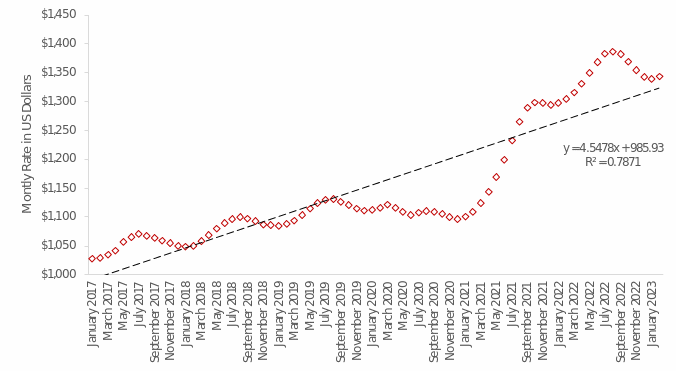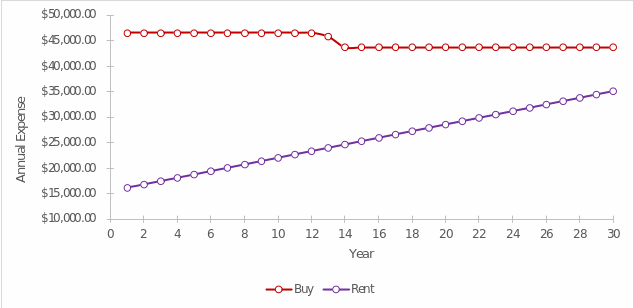Introduction
Financial planning is one of the critical tools of conscious living, allowing one to forecast expenses and assess risks. An approach in which an individual can manage money wisely and create an environment in which finances can multiply allows one to create greater freedom of action and be prepared for the uncertainties and crises of life. Often, after graduating from college or university, the big question for an individual is whether to purchase real estate or whether renting will suffice. While renting seems more sensible in the early stages of beginning adulthood because few graduates have significant savings to purchase real estate, the conflict becomes more apparent as they mature and become employed.
For young people who live in democratic freedoms and the need to move around all the time, having their own home is not a pressing obligation, as they often change neighborhoods, cities, and even countries. Nevertheless, societal pressure exists, especially from adult relatives, who may urge young people to buy homes, including mortgages. Thus, the dilemma between buying real estate or renting one’s home is relevant and acute. This essay asks me to evaluate this choice regarding financial metrics and come to a reasonable and informed conclusion about which is preferable to me.
Internet Article Review
An article from Majaski (2022) discussing the problem of renting or buying real estate was used as background material. The author points out that choosing to purchase or lease, though, is a significant decision that affects your financial health, lifestyle, and personal goals” (para. 1). Overall, the article is entirely devoted to exploring the differences between the two options for housing availability: Majaski evaluates the advantages and limitations of each option and also reports that either option requires a steady source of income. The author first discusses the idea of rental housing, describing the features, namely the absence of capital appreciation, a strictly defined monthly expense, and the ability to move at any time with the landlord’s agreement. That said, it is not out of the question that the landlord may want to raise the rent at the end of the contract term, which can be difficult for me if I plan to spend a different amount each month.
Majaski discusses the features of homeownership: having equity, the freedom to choose design and appearance, and a sense of stability. However, the author warns that real estate is an illiquid asset, so it is only sometimes possible to sell at or above the market price, as the real estate market is very strongly influenced by demand and other economic circumstances. In addition, owning your own home can be costly even if your monthly mortgage payment is lower than the rent, as there are additional payments in the form of taxes, utilities, and other regular or irregular payments. Majaski also points out that repair costs for your property can be quite costly.
The author provides specific comparisons between homeownership and residential rental properties in the next section. For convenience, I will summarize the critical points of this comparison in a Table.
Table 1 — Homeownership vs. rental housing comparison results (based on Majaski, 2022).
Financial Analysis
As of the beginning of the current chapter, I can’t say which of the dilemma options suits me best. On the one hand, I wish to have my own house, in which I am free to choose both what the rooms will look like and in which area of town it will be located. I know this decision requires serious financial investment and a high level of responsibility. Still, I also understand that I can rent out my house, for example, through Airbnb, when I want to go on vacation. On the other hand, renting is a much easier option in the context of responsibility and expense. By depriving myself of the choice of repairs and appearance, I get a stable expense and relief from responsibility for associated fees, including taxes. For this reason, I would like to take a deeper look at this dilemma in light of financial analysis and the time value of money to come to some conclusion.
The first thing to sort out is the primary costs, assuming I do not have a rental home or a purchased property. According to SRD (2023a), as of February 2023, the average monthly rent payment is $1343. Since the source represents a time series by month, I ran an additional regression analysis (Figure 1). The rent should increase by about $4.55 each month, given the rough assumptions of trend linearity. However, the lease is usually for one year, when the cost cannot be changed, so it should be assumed that the rent increase would be $54.57 each year.

On the other hand, the average cost of a new home in the United States was $543,600 by 2022, and the average interest rate on a 30-year mortgage was 7.08% (SRD, 2023b; Bernard, 2022). Assuming I have no money for a down payment and a PMI of 0.5%, my monthly mortgage payment would be $3,872.34 (MC, n.d.). I did monthly and yearly planning (presented in an additional MS Excel file), which showed me that over 30 years, the total amount of money I would have to pay for rent is $768,335.40 (including annual increases), and assuming a mortgage on the property, is $1,347,156.90. As Figure 2 shows, during each year of the 30 years, the amount I will pay for rent will always be, at most, the amount spent on the rent.

At first glance, a difference of 1.75 times, equivalent to $578,821.50 or an average of $19,294.05/year, seems tangible. With that money, which did not go to pay mortgage interest, if I used the rental scenario, I could provide myself with a higher standard of living, travel, and related expenses. It is fair to admit that real estate can get more expensive over time, and the average annual increase is 14.5% (Ziraldo, 2023). This would mean that the value of my equity would increase each year by 14.5% of the original value of the home I purchased, and after a while, I could sell it for more than I originally purchased it for. However, I should remember that the increase in value is only valid for houses that are regularly renovated and repaired; therefore, I would have to make substantial regular investments in the property to maintain its market value.
Looking at the results from another angle is acceptable: the annual average difference between the two scenarios is $19,294.05, equivalent to an average of $1,607.84 per month. I can easily find banks with an APY equal to 3.5% or even higher; thus, if I put $1,607.84 on a monthly bank deposit with a 3.5% APY, subject to monthly compounding, in 30 years, I will have accumulated $1,026,229.65, of which $445,799.41 were net earned assets (Knueven et al., 2023; Hazell & Hindle, 2023). This amount is almost equivalent to the cost of a new home, which means that in this scenario, it seems reasonable to live in rental housing for 30 years, invest the money at 3.5% or higher interest, and after a while, have net savings to buy the property outright.
Conclusion and Limitations
In my financial analysis, the 30-year rental scenario, even with the annual cost increases, seems reasonable because it keeps me with more money to spend on my personal needs. Alternatively, I can invest that money, allowing me to purchase my home in 30 years or sooner at market value. This scenario seems fair to me because I save money, manage the quality and comfort of my life, and can move if I need to. If the geopolitical or economic situation in the country deteriorates, I also have the option to leave because I am not tied to a particular home.
That said, there are some limitations and assumptions to consider during the financial analysis. First, I was guided by the average market values of rented and bought homes, so the results are only partially fair. Second, over 30 years, I will likely acquire a family, so it is not out of the question that I will need a larger rental home, which will shorten the monetary distance between the two scenarios. Third, I did not consider the emotional risks of not having personal housing because they are difficult to predict. However, the option I proposed is the most effective regarding financial literacy, opportunity, and freedom.
References
Bernard, T. S. (2022). U.S. mortgage rates rise past 7%. The New York Times. Web.
Hazell, A., & Hindle, C. (2023). Compound interest calculator. The Calculator Site. Web.
Knueven, L., Acevedo, S., & Tarpley, L. G. (2023). The average bank interest rates for CDs, savings accounts, checking accounts, and money market accounts. Personal Finance. Web.
Majaski, C. (2022). Renting vs. owning a home: What’s the difference? Investopedia. Web.
MC. (n.d.). Mortgage calculator: Your mortgage payment information. Mortgage Calculator. Web.
SRD. (2023a). Average monthly apartment rent in the U.S. 2017-2023, by apartment size. Statista. Web.
SRD. (2023b). Average sales price of new homes sold in the U.S. 1965-2023. Statista. Web.
Ziraldo, K. (2023). Home appreciation: What does appreciation mean and how is it calculated? Rocket Mortgage. Web.